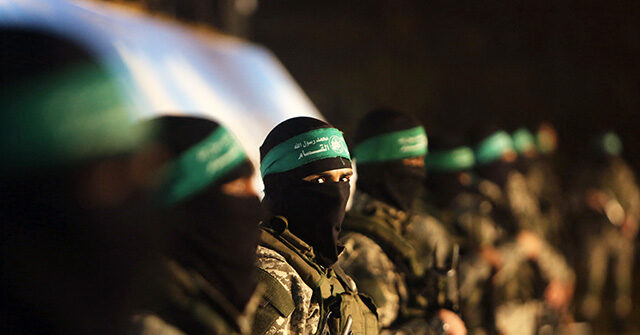On a recent episode of NPR’s “All Things Considered,” correspondent Aya Batrawy reported on the troubling situation of aid distribution in Gaza, highlighting how much of the humanitarian assistance intended for civilians is being intercepted by criminal gangs. Batrawy emphasized that many of these looters were previously known criminals, suggesting that the chaos of the ongoing conflict has allowed them to form organized groups, equipped with weapons such as assault rifles and knives. Despite this alarming trend, she noted that the Israeli military has not taken significant action to address the looting occurring in areas under its control, raising questions about its role in maintaining order amidst the conflict.
Batrawy’s observations pointed to a critical breakdown in the system of aid distribution in Gaza. She mentioned that a substantial portion of the humanitarian aid is falling into the hands of these gangs, further exacerbating the suffering of the civilian population that desperately needs assistance. The looters, many of whom were already associated with criminal activities prior to the outbreak of war, have found an opportunity to exploit the chaos, transforming into a more organized and armed presence. The implications of this looting extend beyond theft; they disrupt the delivery of vital supplies to those affected by the conflict, creating a precarious situation for the residents of Gaza.
The NPR correspondent addressed the complexities surrounding the aid restrictions implemented by Israeli authorities. According to Israeli officials, these limitations are ostensibly in place to prevent Hamas from benefitting from the aid that is meant for innocent civilians. Hamas, which is currently facing scrutiny for its actions and is wanted by the International Criminal Court for alleged war crimes, is claimed to be involved in orchestrating certain looting activities. Yet, the situation is further complicated by the fact that, following a violent incident involving a U.N. convoy, Hamas security forces took it upon themselves to execute around 20 individuals suspected of looting. This act raises critical questions regarding the governance structure in Gaza and the capabilities of those overseeing law and order during the turmoil.
Batrawy’s report underscores a broader theme regarding the challenges of humanitarian aid in conflict zones, where political tensions and criminal activities often collide. The issues surrounding the theft of aid in Gaza exemplify how armed conflicts can create a lawless environment in which vulnerable populations suffer even more due to the actions of criminals. The international community must understand these complexities when formulating responses to humanitarian crises, as the interplay between various factions can hinder efforts to provide meaningful assistance to those in need.
As the situation evolves, it reflects the larger implications of governance in wartime conditions. The inability of the Israeli military to effectively combat looting and restore order suggests a significant lapse in maintaining security, which ultimately affects civilians more than any warring parties. The dynamics of power in Gaza are fraught with challenges, not just from rival factions but also from the transcendent threat posed by rampant criminal activity. How different entities approach the issue of aid distribution will influence not only immediate relief efforts but also long-term stability in the region.
In conclusion, Batrawy’s insights reveal a critical landscape characterized by chaos, opportunism, and the tragic consequences of war on civilian life. The interplay between aid, criminal behavior, and military oversight presents a multifaceted challenge that requires serious consideration from both local authorities and the international community. Addressing the complexities of humanitarian aid distribution in such contexts is essential for ensuring justice and support for those who require it the most, and for fostering a path toward peace and recovery in regions enduring conflict.

